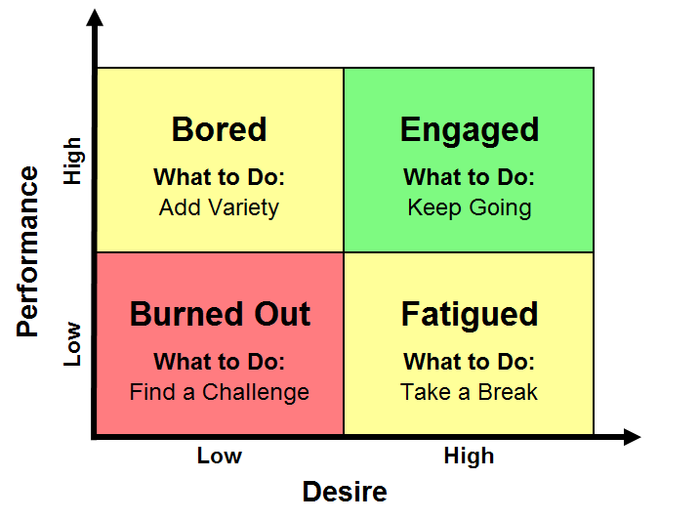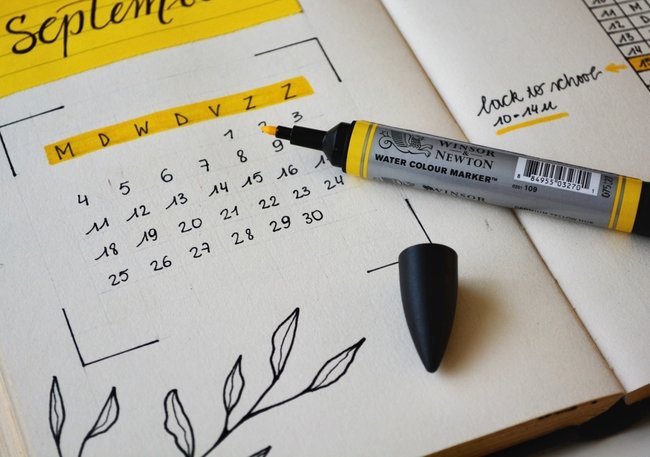 I am not Superman.
I am not Superman.
I’ve come to grips with that reality lately.
No matter how much I preach work ethic, focus, and productivity, the human element always has something to say. Add the stress of a global pandemic to those limits, and it becomes clear why creators like me haven’t been on top of our game.
Sure, the desire to create is still there—in fact I’ve been itching to do so—but it’s hard to adapt when temporary change proves to truly be a new normal.
So you know what I did?
I took a break.
I didn’t write at all for about a month, and this was the best decision I could have made.
This time away has done wonders for my health and I’m ready to get back in action, but I thought I’d share some self-care tips here before I really put my foot on the gas.
So let’s see how you can take a successful break too (and come back with a vengeance later).
When to Shut It Down
 First, you need to know when breaks are actually needed.
First, you need to know when breaks are actually needed.
Take a break too early or too often and you’ll sabotage your momentum, but wait too long to take one and you’ll face the much tougher challenge of burnout.
Finding the medium between those extremes is the goal. And the best way to find it is to assess two metrics:
- Your desire
- Your performance
Your desire is how much you want to do the task. It’s the internal motivation that drives you to perform. Yes, external rewards do play a role here, but for any long-term action, it’s more important to track that fire within.
Your performance is an objective measure of how well you’re doing the task. Has your weekly output changed from the start? Does it hurt to move in ways your body should be used to? Is it hard to connect the dots on problems that were easy before? Ask questions like those to see where you’re at.
Once you evaluate your desire and performance, use the following chart to decide your next move:

If You’re Engaged
If your performance is high and your desire matches, you’re in a great place. You’re feeling good and you’re doing good, so keep it up.
If You’re Bored
Boredom occurs when your performance is high but you’re missing the newness that made the task exciting.
This is a frustrating position but it’s not the worst spot to be in. Just add some variety to the mix so work feels more like the honeymoon phase.
If You’re Burned Out
Burnout happens when both your performance and your desire are low. It’s the worst-case scenario here because your battery shuts down (low desire) and you can’t even drive (low performance).
A lot of people mistakenly say that this is when you need a break, but you’ve already missed that window if you’re here.
The best cure for burnout is a challenge. You need something to ignite your desire so your performance comes alive too.
If you take a break at this point instead, you’ll just come back as dead as before.
If You’re Fatigued
Healthy desire and low performance are symptoms of fatigue. You still want to do the task, but for some reason, your mind or body can’t keep up.
This is when you should take a break.
Why is that?
It’s because breaks are maintenance for your performance. They keep your human side healthy so you can do all that you’re driven to do.
If you don’t take a break when you reach this point, your performance and desire will continue to slide until you eventually burn yourself out.
How to Take a Successful Break
Now that you know when to take a break, follow these four steps to make it successful:
Step 1: Determine the Length
 Planning is the difference between a successful break and a retirement.
Planning is the difference between a successful break and a retirement.
The actual time spent away is up to you, but make sure your return date is set in stone. We all know how easily days turn into weeks and weeks turn into months. The last thing you want to do is fall down that slippery slope.
That being said, I actually encourage you to take more time than you think you need. Remember, if you’re taking a break, your desire to perform should still be high, and if you intentionally prolong this time, you’ll be anxious to start back later.
Every person who truly loves what they do will start itching when that task is gone. And the more you let that itch build up, the more satisfying the scratch will be.
Give yourself enough time to let that happen.
Don’t let anyone pressure you into rushing back either. They aren’t you and they don’t know your needs.
Your performance will improve when you come back anyway. So let them grumble all they want while you’re gone.
Step 2: Acknowledge Your Weakness
You wouldn’t need a break if your performance was high, so stop trying to look invincible. Acknowledge whatever is holding you back and address it while you’re away.
For example, one weakness I had to address was my inability to focus.
Even though the pandemic’s died down, I still can’t write at the library like I used to. So I’ve gone almost half a year writing in less than optimal conditions.
It’s infuriating, but I experimented with strategies over the break that helped:
- I tried writing in empty parking lots after work.
- I drove around town just to feel like I went somewhere before writing back at my place.
- I even sorted through a bunch of background music apps to help me focus (I highly recommend brain.fm by the way).
You should do something similar during your time off. Acknowledge what’s holding you back and use the break to solve it as best as you can.
Even if you don’t fully recover, the reduced pressure to perform will give you the relief you desperately need.
Step 3: Live for You
For creators like myself, it’s very easy to fall down the “everything is content” hole. Sure, this mindset helps you form ideas and be creative, but use it too long, and you won’t enjoy anything for its own sake.
That’s a torturous road the grind will lead you down if you don’t counter it.

Take me for example again. I post a lot of faith related and biblical stuff on this site, but I’ve recently neglected some spiritual disciplines because they didn’t give me material.
I stopped praying like before because that was time away from the screen. And I was mining the Bible for content instead of reading to be close to God.
That’s why I had to step back. I needed to do stuff for myself again. I had to stop thinking about content and just involve God in my life.
We all have to do things for ourselves to stay strong. Some people might say that’s selfish, but what’s really selfish is letting pride blind you to weaknesses that limit your ability to give.
So stop being busy for once and do things for you instead. Read because you enjoy it. Visit friends because you love them. Watch a movie because it’s interesting.
Just relax and live your life. You can always flip the switch later.
Step 4: Hit the Ground Running
Finally, you need to hit the ground running.
We talked about setting a return date earlier, and the last part of your break is when you prepare for that return.
You don’t want to take time off and then mosey back into old patterns. You want to come back with a vengeance:
- So what can you do to make a statement when you return?
- What actions can you take to show that you’re better than before?
- How can you be an example for those who will count on you when you’re back?
Don’t get me wrong, you should relax while you have time off, but you still need to prep so you’re good to go later.
Make a detailed plan for your return, commit to making it happen, and then show the world what you can do when you’re back.
Even Heroes Need a Breather

Follow those four steps, and I promise, you will catch fire again.
Remember that taking time for you doesn’t mean you’re lazy; it means you’re smart. High-level performance takes its toll on the body, and you owe your best self to the people who really care.
So leave your cape in the closet this time around. The city will survive a few nights without you.
-Drew
Photo Credits (in order of appearance): @jeremybishop, @dogukan, @esteejanssens, @sidbobs, @hamzasky on Unsplash
Leave a Reply